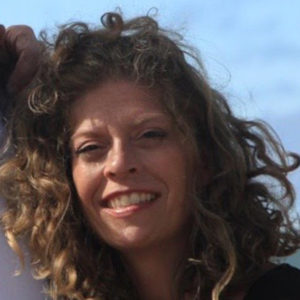Connection to God / Connecting to and depending on the divine.
What does flourishing leadership look like in the real world? Resilient Leaders Project asked alumni of The Seattle School of Theology & Psychology about how they’ve flourished while creating contextually-responsive ministry. In listening to these leaders, we found six common themes–practices and ways of being that other leaders can apply to increase their own flourishing. This blog series will share those themes, one at a time, through the stories of flourishing leaders. To see the other themes and leader profiles, read the Flourishing in Service Report. This week’s theme is connection to God: leaders need practices that help them experience transcendence and guidance from God.
 Martha Wood
Martha Wood
MDiv 2015
Interim Released Minister at West Hills Friends Church
Being a minister in a Quaker setting is a unique playground. I get to contribute and
participate as one part of the whole body rather than get saddled with the weight and pressure of making the church “successful” or delivering “powerful” sermons. I do get to be up front more often, hosting meetings for worship and offering messages, but my task is to make space for each person to encounter the Divine, to offer prompts and opportunities to hear the Spirit as clearly as possible, to identify and connect folks’ swaths of gifts and contributions in the life of the community. Leading in this context is the ground of my flourishing.
My previous call brought my personal story, strengths and weaknesses into sharp relief: I will always hope for harmony within a community, and the community’s fractures will reflexively attempt to rend me. My job (on paper) was to hold this community together while trying to
reconcile its warring parties. I experienced disrupted sleep, chest pains, headaches, difficulty concentrating, weeping on my daily commute: I was play-doh-pressed by the demands. Many voices clamored for my attention, but I came to see that my task was to listen through and beyond all those voices for the voice of the Spirit, for the greater truth that we all needed to hear. Some people expected me to save their church, but I knew that the Spirit would be the one moving in people’s hearts; it wasn’t my job to change or save anyone. I had never before felt such dependence on and sustenance from God.
There was a rollercoaster year between my first and second call, during which I grappled deeply and encountered the thing that has reoriented my life: pilgrimage. I walked the French route of the Camino de Santiago, and six months later returned to Spain to walk the Camino Primitivo and to volunteer in a pilgrim shelter. These three experiences renovated the way I understand and experience God, faith, community, faith-community, fellowship, ministry, time, resources, provision, and myself in the world. Walking 800 km was a foil for encounter: encountering God, myself, others, creation. I could not comprehend the word “flourishing” apart from the experience of pilgrimage.
 Hillary B. Kimsey
Hillary B. Kimsey
MDiv 2017
Hospital Chaplain, candidate for Episcopal Priesthood
When I was a resident chaplain at Harborview, I became deeply involved in a tragic case involving a child that dragged on for months. The grief of this child, these parents, and the many caregivers involved poured into me along with my own grief and crushing sense of helplessness. I finally said to my peers and my educator, “I don’t know if I can do this anymore.” I wept in front of them, letting loose all of my sadness, my anger, my doubts–both in God and myself. And when I had finished weeping, I wondered– have I shown them now that I can’t do it by this show of emotion? But no, what I found was the group weeping with me and joining me in the struggle.
At the same time, I was in discernment for my call to the Episcopal Priesthood. In sharing with my discernment group what I was going through, I broke down into tears and admitted to doubts and anger and despair of God even while I clung to my love for God and belief that God’s presence somehow remained with me and the family I’d come to care for so much. When my tears were spent, I wondered– have I shown them I’m unfit for the priesthood by this show of emotion? But no– they cried with me and said, “We are more sure now than ever that you are called.”
Both times, my vulnerability was welcomed and cared for, even seen as a strength! I learned that to flourish in this ministry, I must tend to my own grief in safe and supportive communities.
 Lisa Henton
Lisa Henton
Certificate in Resilient Service 2018-2019
Pastor, Coast Vineyard Church
I believe there are three components to flourishing: belonging, being and doing. I get a picture of an amazing healthy fruit tree: deep roots and a solid trunk with far-reaching branches that are filled with good fruit. In this analogy, the belonging would be the root system, the being would be the trunk and the doing would be the branching out bearing much fruit.
As a leader, I have to ask myself what am I flourishing unto: the world or God’s Kingdom? The secular world tells us that flourishing is about our doing and that’s where we get belonging or our being. We have to retrain ourselves and the people in our community about what flourishing in the Kingdom really is.
As a leader, I try not to underestimate the power of prayer. I think we fall into this trap because it’s easier to put our best effort into it and see some results, even if they’re not a fraction of what we’re hoping for. Prayer is about our connection with God; it’s how we sink our roots in deep to get the nourishment for our being and the outflow of our doing. We need to be deeply grounded in the heavenly father’s love for us. The ancient future community in Acts joined together and prayed constantly; that’s how they were able to flourish under all kinds of conditions.
Obedience is also important, especially when I’ve had to face betrayal in my ministry. Like the community in Acts who obeyed the Spirit by replacing Judas, we also must carry on with what we have been commissioned to do even in the face of betrayal.
Learn more about Resilient Leaders Project and the Certificate in Resilient Service.


